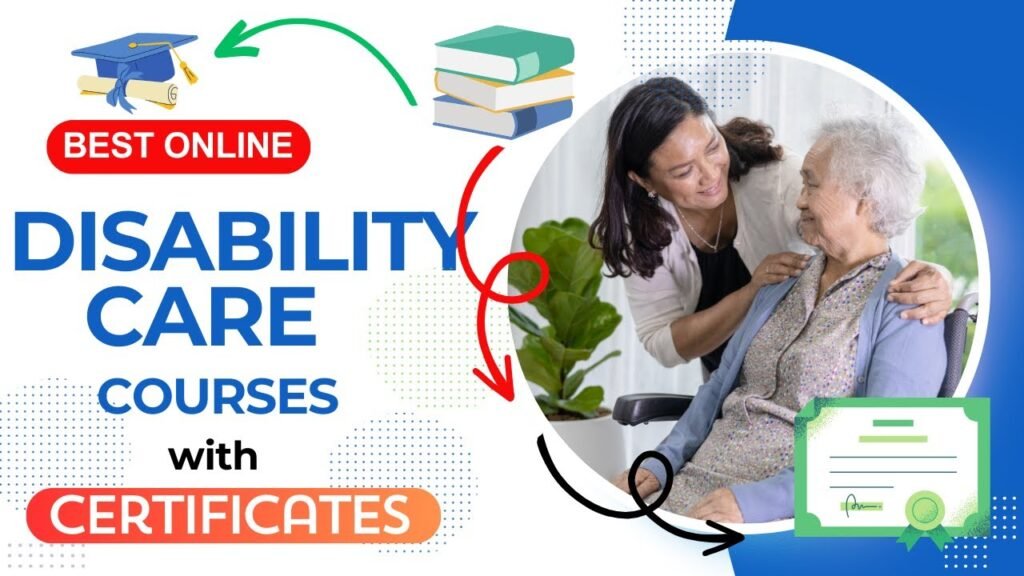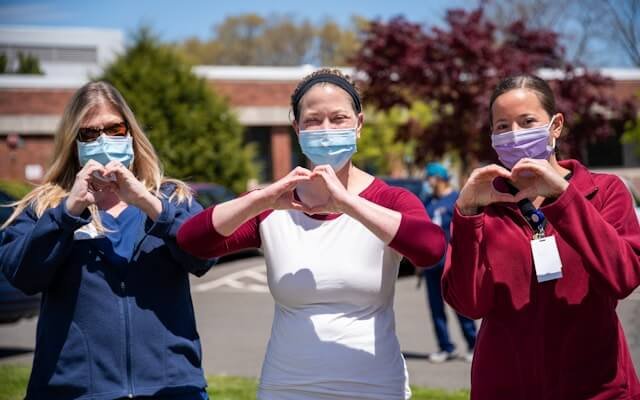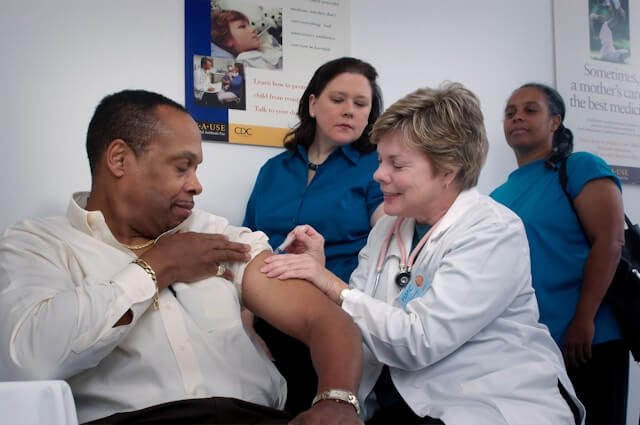The healthcare industry continues to undergo transformation at an unprecedented pace, driven by technological advancements, shifting patient demographics, and evolving care models. As we navigate through 2025, the demand for nurses equipped with comprehensive clinical nursing skills has reached new heights. Healthcare facilities are seeking professionals who can seamlessly blend theoretical knowledge with practical expertise to deliver exceptional patient care.
Whether you’re a nursing student preparing for your first clinical rotation, a recent graduate entering the workforce, or an experienced nurse looking to refresh your skills, mastering these essential nursing techniques is crucial for career advancement and patient safety. The good news is that acquiring these vital competencies has become more accessible than ever, thanks to innovative online learning platforms offering comprehensive nursing skills training programs.
Why Clinical Nursing Skills Matter More Than Ever in 2025
The modern healthcare landscape presents unique challenges that require nurses to be more skilled and adaptable than previous generations have been. Patient acuity levels have increased, hospital stays have shortened, and nurses are expected to manage more complex cases with greater independence. Additionally, the ongoing emphasis on patient safety, quality outcomes, and cost-effective care has made clinical proficiency a non-negotiable requirement for nursing professionals.
Healthcare employers are increasingly prioritising candidates who demonstrate both hands-on competency and academic qualifications. This shift has made practical clinical nursing skills the cornerstone of successful nursing careers, influencing everything from job opportunities to salary potential and career advancement prospects.
Essential Nursing Techniques Every Professional Should Master
1. Vital Signs Monitoring: The Foundation of Patient Assessment
Monitoring vital signs remains one of the most fundamental yet critical clinical nursing skills every professional must perfect. These measurements—including body temperature, heart rate, respiratory rate, blood pressure, and oxygen saturation—serve as the primary indicators of a patient’s physiological status and can reveal early warning signs of deterioration.
Accuracy in vital signs assessment goes beyond simply using medical equipment correctly. Skilled nurses understand the significance of trending patterns, recognise normal variations across different patient populations, and can identify subtle changes that may indicate the development of complications. They also know how environmental factors, medications, and patient conditions can influence these measurements.
Modern healthcare settings increasingly rely on electronic monitoring systems, but the ability to manually assess vital signs remains invaluable. Nurses must be comfortable using both traditional and digital equipment, understanding when each method is most appropriate, and being able to troubleshoot technical issues that may arise.
The interpretation of vital signs requires a contextual understanding—knowing what is normal for each individual patient based on their age, medical history, current medications, and clinical condition. This skill develops through practice and experience, making comprehensive nursing skills training essential for building confidence and competency.
Also Read: Key Differences Between Nursing Leadership and Nursing Management
2. Infection Control in Nursing: Protecting Patients and Healthcare Workers
The global health events of recent years have elevated infection control in nursing from a standard protocol to a critical patient safety priority. Healthcare-associated infections remain a leading cause of preventable patient harm, underscoring the importance of infection prevention skills in modern nursing practice.
Proper PPE usage has become increasingly sophisticated, with nurses needing to understand the appropriate selection, donning, and doffing procedures for various types of personal protective equipment. This includes knowing when to use different levels of precautions, how to properly dispose of contaminated materials, and understanding the principles behind isolation protocols.
Hand hygiene, although seemingly basic, requires consistent technique and awareness of timing. Nurses must understand the five moments of hand hygiene, proper handwashing techniques, and when alcohol-based sanitisers are appropriate versus when soap and water are necessary. Environmental cleaning and disinfection protocols have also become more complex, requiring knowledge of different cleaning agents and their appropriate applications.
Modern infection control extends beyond traditional practices to include understanding antimicrobial resistance, implementing evidence-based prevention strategies, and educating patients and families about infection prevention measures they can take at home.
3. Advanced Wound Care and Basic Procedures
Wound assessment and management represent critical essential nursing techniques that directly impact patient outcomes and recovery times. Today’s nurses encounter increasingly diverse wound types, from surgical incisions and pressure injuries to complex chronic wounds requiring specialized care approaches.
Effective wound care begins with thorough assessment skills, which involve evaluating the wound’s size, depth, drainage characteristics, surrounding tissue condition, and signs of infection or healing progression. Nurses must understand the wound healing process, factors that can impair healing, and interventions that promote optimal recovery.
Modern wound care incorporates evidence-based practices and advanced treatment modalities. This includes understanding different types of dressings and their appropriate applications, negative pressure wound therapy, and emerging technologies such as bioengineered skin substitutes. Nurses also need skills in wound measurement techniques, photography for documentation, and pain management strategies specific to wound care procedures.
Documentation of wound care has become increasingly detailed and standardized, requiring nurses to use specific terminology and measurement techniques that ensure continuity of care across different providers and settings.
4. Patient Communication and Therapeutic Relationships
Effective communication skills have evolved into sophisticated clinical nursing skills that encompass verbal, non-verbal, and written communication across diverse patient populations. Modern nurses must be culturally competent communicators who can tailor their approach to meet the needs of patients with diverse backgrounds, including age, educational level, cultural background, and health literacy.
Therapeutic communication involves more than simply being friendly or empathetic. It requires specific techniques for conducting patient interviews, providing health education, managing difficult conversations, and supporting patients and families through challenging situations. Nurses must also be skilled in motivational interviewing techniques that help patients make positive health behaviour changes.
Technology has added new dimensions to patient communication, requiring nurses to develop skills in telehealth platforms, electronic communication systems, and digital health education tools. They must also understand privacy and confidentiality requirements in digital communication and social media environments.
Interdisciplinary communication has become equally important, as nurses increasingly serve as care coordinators who must effectively communicate with physicians, therapists, social workers, and other healthcare team members to ensure seamless patient care.
5. Medication Administration and Safety Protocols
Safe medication administration encompasses far more than the traditional “five rights” of medication safety. Modern clinical nursing skills in medication administration include understanding pharmacological principles, recognising potential drug interactions, and implementing comprehensive safety protocols to prevent medication errors.
Nurses must be proficient in various administration routes and techniques, from basic oral and intramuscular injections to complex intravenous therapy management. This includes understanding IV fluid calculations, pump programming, and troubleshooting common IV complications.
Technology integration in medication administration requires familiarity with electronic medication administration records (eMAR), barcode scanning systems, and automated dispensing machines. Nurses must also understand the principles behind these safety systems and know how to respond when technology failures occur.
Patient education about medications has become a critical component of medication administration, requiring nurses to explain the actions, side effects, and safety precautions of medications in ways that patients can understand and remember.
Budget-Friendly Nurse Training: Accessible Skill Development
The traditional pathway to nursing education often involves significant financial investment and time commitments that aren’t feasible for everyone interested in developing clinical nursing skills. This has created a growing demand for flexible, affordable alternatives that don’t compromise on quality or comprehensiveness.
Budget-friendly nurse training options have emerged to address these needs, offering structured learning experiences that can supplement formal education or provide continuing education for practising nurses. These programs often focus on the application of practical skills and real-world scenarios that directly translate to clinical practice.
Online learning platforms have revolutionised access to nursing education by eliminating geographical barriers and enabling learners to progress at their own pace. This flexibility is particularly valuable for working nurses who need to balance continuing education with their existing professional and personal commitments.
The key to effective online nursing skills training lies in programs that combine theoretical knowledge with practical application opportunities. The most effective courses include interactive simulations, case studies, and hands-on practice guidelines that help learners develop confidence in their clinical abilities.
The Alison Diploma in Clinical Nursing Skills: Comprehensive Training at No Cost
Among the available online clinical skills courses, the Diploma in Clinical Nursing Skills from Alison stands out as a comprehensive, accessible option that addresses the full spectrum of essential nursing competencies. This program has been specifically designed to meet the needs of both aspiring and practising nurses who want to develop or refresh their clinical skills.
The course structure covers all the fundamental areas identified as critical for modern nursing practice. Students learn to monitor vital signs through detailed modules that explain proper techniques, equipment usage, and interpretation guidelines. The infection control components provide current, evidence-based protocols that reflect the latest understanding of disease prevention and safety practices.
Wound care modules combine theoretical knowledge with practical guidance, helping learners understand the complexities of modern wound management while building confidence in their assessment and treatment skills. The communication components address both patient interaction and interdisciplinary collaboration, recognising the central role nurses play in healthcare coordination and coordination.
What makes this program particularly valuable is its accessibility and flexibility. Being completely free removes financial barriers that often prevent individuals from pursuing additional education. The self-paced format enables learners to balance their studies with work and personal commitments, making it a practical option for busy healthcare professionals.
The global accessibility of the program means that nurses in underserved areas or developing healthcare systems can access the same quality education as those in major medical centres. This democratisation of education helps raise global standards of care while supporting individual career development.
Implementing New Skills in Clinical Practice
Learning essential nursing techniques through online education is just the first step in developing nursing skills. The real value comes from successfully implementing these skills in clinical practice, which requires thoughtful planning and ongoing refinement.
New graduates and nurses transitioning to different specialities benefit from structured approaches to skill implementation. This may involve seeking mentorship opportunities, requesting supervised practice sessions, or participating in simulation experiences that allow for safe skill practice before applying them to patient care.
Experienced nurses updating their skills need strategies for integrating new techniques into established practice patterns. This often requires unlearning outdated methods and replacing them with evidence-based approaches, which can be challenging but ultimately lead to improved patient outcomes.
Documentation of skill competency has become increasingly important in healthcare settings. Nurses must demonstrate their proficiency through various assessment methods, including direct observation and simulation-based evaluations. Online training programs that provide certificates or continuing education credits can support this documentation process.
Also Read: Conflict Resolution in Nursing: A Healthcare Leadership Guide
Career Impact of Advanced Clinical Nursing Skills
Developing comprehensive clinical nursing skills has direct, measurable impacts on career trajectory and professional satisfaction. Nurses with strong clinical competencies often find themselves considered for leadership roles, speciality positions, and advanced practice opportunities that might otherwise be unavailable.
The current nursing shortage has created a competitive job market, allowing skilled professionals to be selective about their positions. Nurses who can demonstrate advanced clinical proficiency often have access to better working conditions, higher salaries, and more diverse career options.
Speciality certifications and advanced practice roles increasingly require demonstrated clinical competency as a prerequisite. Nurses who have invested in developing these skills through comprehensive training programs are better positioned to pursue these advanced opportunities.
Patient outcomes and safety metrics are increasingly tied to individual nurse performance evaluations. Nurses with strong clinical skills contribute to better unit metrics, which can translate to recognition, career advancement, and professional development opportunities.
Technology Integration in Modern Nursing Skills
The integration of technology into healthcare delivery has created new requirements for clinical nursing skills that weren’t anticipated in traditional nursing education programs. Modern nurses must be comfortable with electronic health records, patient monitoring systems, telehealth platforms, and various mobile health applications.
Electronic documentation requires specific skills in navigating complex software systems while maintaining focus on patient care. Nurses must be able to efficiently input data, retrieve patient information, and communicate through electronic systems without allowing technology to interfere with patient relationships.
Remote monitoring and telehealth capabilities have expanded the scope of nursing practice beyond traditional bedside care. Nurses now need skills in virtual patient assessment, remote patient education, and technology troubleshooting that enable effective care delivery across distances.
Artificial intelligence and machine learning tools are beginning to support clinical decision-making, requiring nurses to understand how to interpret and act on AI-generated recommendations while maintaining their clinical judgment and critical thinking skills.
Maintaining and Updating Clinical Skills
Clinical nursing skills require ongoing maintenance and regular updating to remain current with evolving healthcare practices and evidence-based care standards. The half-life of medical knowledge continues to shrink, making continuing education a professional necessity rather than just a licensing requirement.
Effective skill maintenance involves regular practice, ongoing education, and active engagement with professional development opportunities. This might include attending workshops, participating in simulation exercises, or engaging with online learning modules that address specific skill areas.
Professional nursing organisations offer valuable resources for skill development and maintenance through conferences, webinars, and the publication of best practice guidelines. Membership in these organizations also provides networking opportunities that can support career development and knowledge sharing.
Quality improvement initiatives within healthcare organisations often provide nurses with opportunities to develop new skills while contributing to improved patient outcomes. Participation in these programs can provide practical experience with advanced techniques, demonstrating a commitment to professional growth.
Building Confidence Through Structured Learning
One of the most significant benefits of comprehensive nursing skills training programs is the confidence that comes from structured, systematic skill development. Many nurses struggle with imposter syndrome or anxiety about their clinical abilities, particularly when transitioning to new roles or specialities.
Structured learning programs offer step-by-step skill development, gradually building competency while providing multiple opportunities for practice and reinforcement. This approach helps learners develop genuine confidence based on demonstrated ability rather than hoping their skills are adequate.
The availability of online clinical skills courses has enabled nurses to address skill gaps privately and at their own pace, thereby reducing the anxiety that can arise from learning in high-stakes clinical environments. This private practice environment allows for mistake-making and learning without the pressure of patient care responsibilities.
Certification and credentialing from recognised programs provide external validation of skills, which can boost confidence and credibility with employers, colleagues, and patients. This formal recognition of competency can be particularly valuable for nurses who are changing specialities or advancing their careers.
Conclusion: Investing in Your Nursing Future
The healthcare industry’s evolution continues to create new opportunities and challenges for nursing professionals at all levels of care. Success in this dynamic environment requires a commitment to ongoing skill development and adaptation to changing practice requirements. The essential nursing techniques outlined in this article represent the foundation upon which successful nursing careers are built, but they also require ongoing refinement and expansion throughout one’s professional journey.
The availability of comprehensive, accessible training programs, such as the Diploma in Clinical Nursing Skills from Alison, has removed many of the traditional barriers to professional development. These programs make it possible for aspiring nurses to build essential competencies before entering the workforce while providing practising nurses with opportunities to refresh and expand their skills without significant financial investment or schedule disruption.
Investing in the development of clinical nursing skills is ultimately an investment in patient safety, professional satisfaction, and career advancement. The nurses who will thrive in tomorrow’s healthcare systems are those who commit to building and maintaining comprehensive clinical competencies today.
Whether you’re just beginning your nursing journey or looking to advance your existing career, taking advantage of high-quality, accessible training programs represents a strategic investment in your professional future. The free Alison Diploma in Clinical Nursing Skills course provides an excellent starting point for this journey, offering comprehensive education that prepares you for the challenges and opportunities that define modern nursing practice.
Start building your clinical skill set today and position yourself for success in the ever-evolving world of healthcare. Your patients, your colleagues, and your career will benefit from the commitment you make to excellence in clinical nursing skills.




